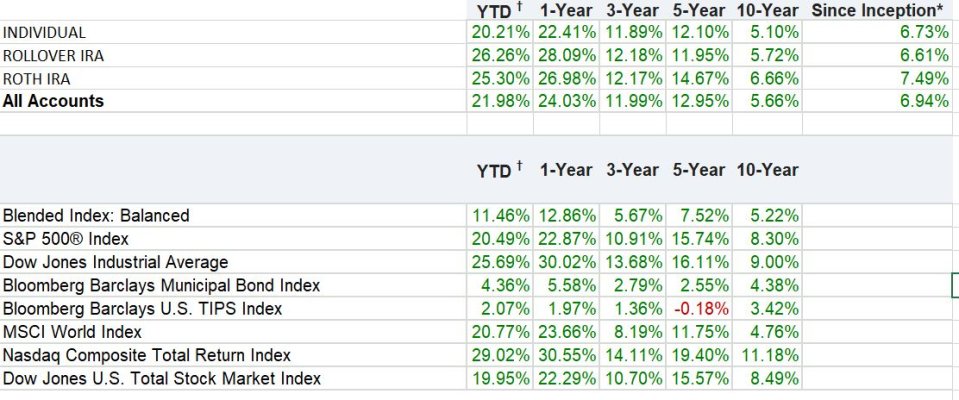Bruceski44
Recycles dryer sheets
- Joined
- Apr 13, 2016
- Messages
- 191
If the answer is, "Live with the fact that it fits your needs and be done with it" (as Texas Proud posted previously) - i.e. I do *not* need to transform my AA in order to hold a lot of bonds - then, that means that RE is in some sense a "substitute" for bonds, at least in my own portfolio (which is the portfolio I was asking about in my OP).
I can relate. My own portfolio is 47% RE, 44% stocks and bonds, 5% bank cash and 5% P2P loans. (not exactly 100% due to rounding errors). Of the stocks and bonds, 10% is bonds and 8% is investable cash.
I've considered adding more bonds, but hesitate for these reasons:
1. Rising interest rates compel me to use short-duration bonds with pathetic yields to avoid price drops.
2. Rising equities compel me to stay fully invested.
3. My RE portfolio generates substantial monthly income. I retired a year ago and haven't needed to draw from my tax-deferred accounts yet. I expect to hold off until after I turn 59.5 late next year.
4. My investable cash cushion will provide for my income needs until my FRA (66 and 10) thanks to dividend income.
5. Two of my RE investments have not started paying regular distributions yet. They are more growth-oriented, but I do expect them to supplement my income at some point.
6. As I wrote previously, my RE portfolio is designed to be as safe as possible.
Perhaps if the market cools off I will reallocate, but am currently looking at preferred stocks instead of bonds. Once we get past the next recession, I will sell my bonds and invest the proceeds into safe, dividend-paying equities and be done. NOTE: I am not trying to time the market, but anyone can see we are near the top. The same goes for RE.
Last edited:


 . When the portfolio is only $1-2 mill, which is typical for the board, not much skiing happening on $1,800 to $3,600 a month.
. When the portfolio is only $1-2 mill, which is typical for the board, not much skiing happening on $1,800 to $3,600 a month.